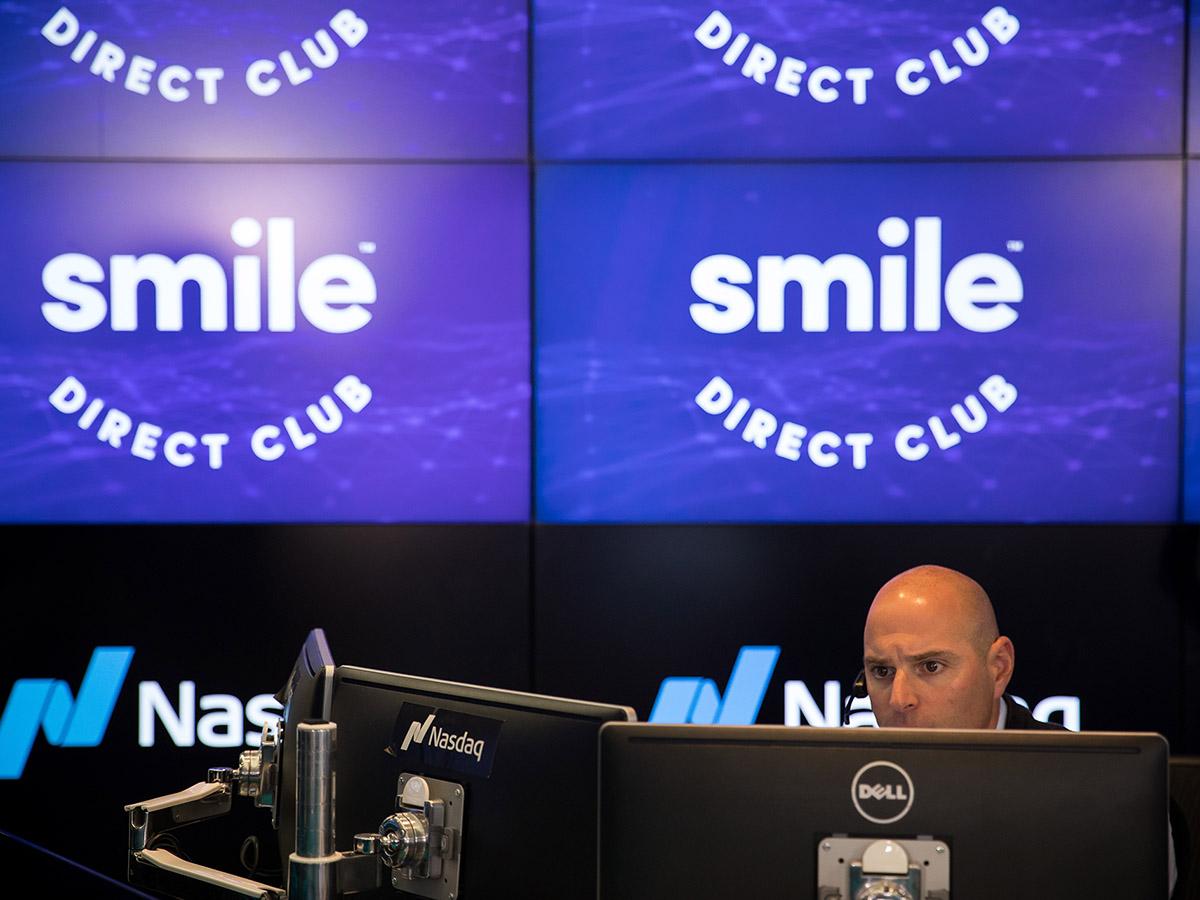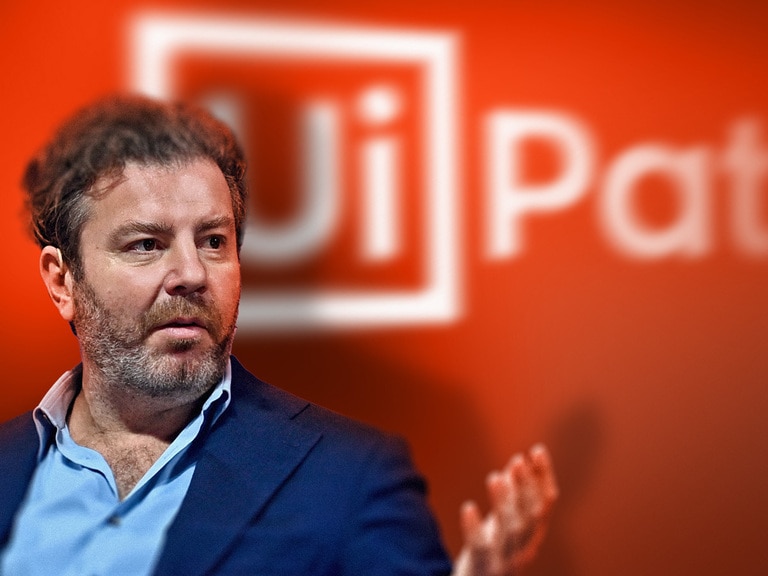On 12 November, SmileDirectClub [SDC] reported its Q3 earnings – the first update since its calamitous September IPO, in which the company found its stock down by 28% on its first trading day. Despite reporting revenues of $180m versus the $165m expected by Wall Street, the company’s share price fell 10% in after-hours trading and a further 27% in the week following.
Wiping the smiles off investors faces was the news that company’s losses are widening, with the company reporting a loss of $0.89 per share (higher than the $0.87 analysts had estimated). The figure brings the online dentistry company’s net losses to $387.8m, up $15m year-on-year.
SmileDirectClub is facing growing investor backlash along with other loss-making companies to recently IPO, such as Peloton. But while investors are growing increasingly concerned about these companies (and their lack of plans for how to make profits), SmileDirectClub holds its buy rating. What’s the story behind the stock?
Earnings breakdown
For SmileDirectClub CEO David Katzman, “Q3 was a good quarter” on account of the rapid growth the company had achieved.
Sales rose by 50% to $180m, up from $119.7m in Q3 2018, as the company shipped 106,070 teeth aligners for the quarter – up 46.5% from the 72,387 shipped in the same quarter last year. In addition, SmileDirectClub had boosted the average price of its aligners from $1,773 in the same period last year to $1,788.
$180million
SmileDirectClub's 2019 Q3 sales - shipping 106,070 teeth aligners
Despite these figures with a market cap of around $4bn before results were announced and no profits to show yet, the company needed to show bigger strides towards profitability, Keith Speights writes on The Motley Fool.
Worryingly, the company is showing widening net losses, due to a combination of stock-based compensation and IPO costs among other factors. SmileDirectClub’s legal costs – which have doubled as the company battles legislation that aims to restrict the online dentist industry – have certainly not helped either.
The fundamentals behind the fall
SmileDirectClub is currently 50% off its debut share price of $20.59 as of 25 November’s market close, with a few factors playing into the dentistry upstart’s struggles since it went public in September. It went public in September, following in the footsteps of several high-profile companies which have failed to impress investors post-IPO.
The nail in the coffin was WeWork’s spectacular IPO flop, which saw it pull out of a public listing after its financials were called into question and CEO ousted. This set the mood for SmileDirectClub’s flotation.
Another factor is the increasing regulatory scrutiny the company is facing. The at-home teeth-straightening service offers remote care from orthodontists, who work with clay models sent in by customers. The American Association of Orthodontists believes that skipping in-person visits and X-Rays creates medical risks and has filed complaints to the Federal Trade Commission and Food and Drug Administration.
Such battles have led to losses for SmileDirectClub in its latest quarter, and the company’s executives have admitted that these skirmishes with authorities could last years.
In the meantime, Katzman said on the company earnings call: “We don't feel that this does anything to our model, but we are going to debate it with the governor and other bodies of legislature.”
“We don't feel that this does anything to our model, but we are going to debate it with the governor and other bodies of legislature” - SmileDirectClub CEO David Katzman
Net losses are also likely to continue due to increasing customer acquisition costs, which have more than doubled to $340m in the last nine months from $143m. Elsewhere, general and administrative expenses surged to $486m from $77m in the same period. All in all, expenses are massively outstripping revenues.
What’s the upside?
Despite all of these concerns, many investors remain positive about SmileDirectClub stock. CNN data shows that 10 out of the 10 polled investment analysts currently see SmileDirectClub as a buy. The company’s international presence is growing, leading investors to hope for future gains.
Jefferies analyst Brandon Couillard told Forbes in a recent interview that he believes that the focus should be on SmileDirectClub’s fundamentals and valuation, which he believes are strong.
What’s more, he says this might be the best time to buy the stock. "[The company's] valuation relative to other high valuation healthcare businesses is at a substantial discount," he said.
Evidence of discount buying was shown on 19 November, when SmileDirectClub soared by 11.3% in a day.
| Market cap | $3.754bn |
| EPS (TTM) | -1.12 |
| Operating Margin (TTM) | -71.64% |
| Quarterly Revenue Growth (YoY) | 49.90% |
SmileDirectClub share price vitals, Yahoo Finance, 26 November 2019
Outlook
SmileDirectClub is guiding for sales to finish between $750m and $755m by the end of the year, 78% up on its 2018 performance.
Couillard has downgraded his end of year estimates after SmileDirectClub’s recent results, and now predicts that the company will earn $1.19 per share for the year, down from the previous $1.15, Slater Sentinel reports. Jefferies currently has a ‘buy’ rating on the stock and a $22 target price – a potential 144.7% upside on the $8.99 seen at close on 21 November.
Credit Suisse Group cut their target price on SmileDirectClub from $18 to $17 and set an “outperform” rating after results, while UBS Group reissued a buy rating and set a $18 target price, down from $24. Elsewhere, Guggenheim started coverage on SmileDirectClub in October and issued a buy rating and an ambitious $24 price objective for the company.
Disclaimer Past performance is not a reliable indicator of future results.
CMC Markets is an execution-only service provider. The material (whether or not it states any opinions) is for general information purposes only, and does not take into account your personal circumstances or objectives. Nothing in this material is (or should be considered to be) financial, investment or other advice on which reliance should be placed. No opinion given in the material constitutes a recommendation by CMC Markets or the author that any particular investment, security, transaction or investment strategy is suitable for any specific person.
The material has not been prepared in accordance with legal requirements designed to promote the independence of investment research. Although we are not specifically prevented from dealing before providing this material, we do not seek to take advantage of the material prior to its dissemination.
CMC Markets does not endorse or offer opinion on the trading strategies used by the author. Their trading strategies do not guarantee any return and CMC Markets shall not be held responsible for any loss that you may incur, either directly or indirectly, arising from any investment based on any information contained herein.
*Tax treatment depends on individual circumstances and can change or may differ in a jurisdiction other than the UK.
Continue reading for FREE
- Includes free newsletter updates, unsubscribe anytime. Privacy policy





